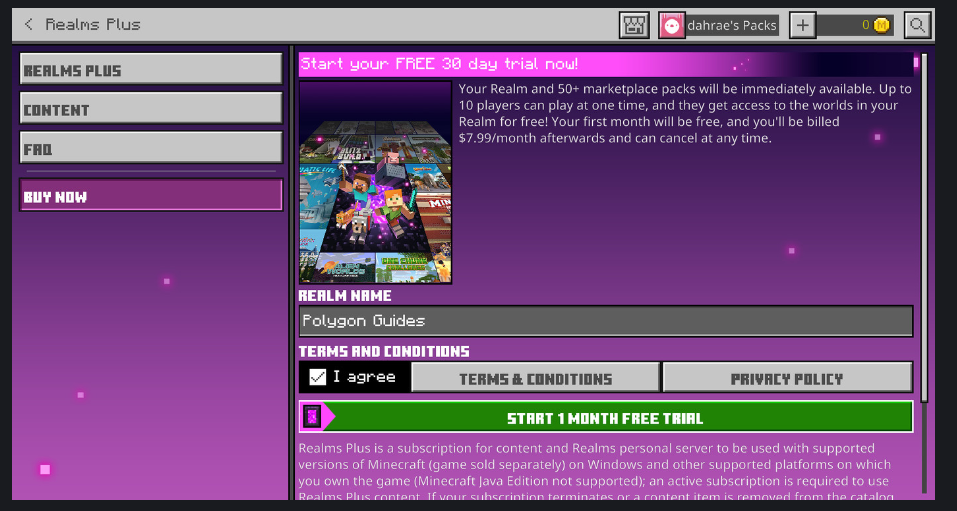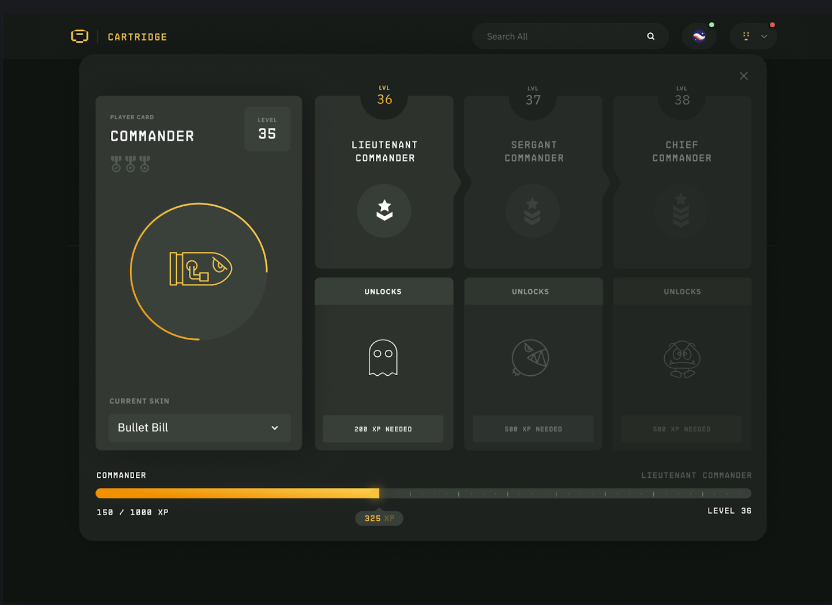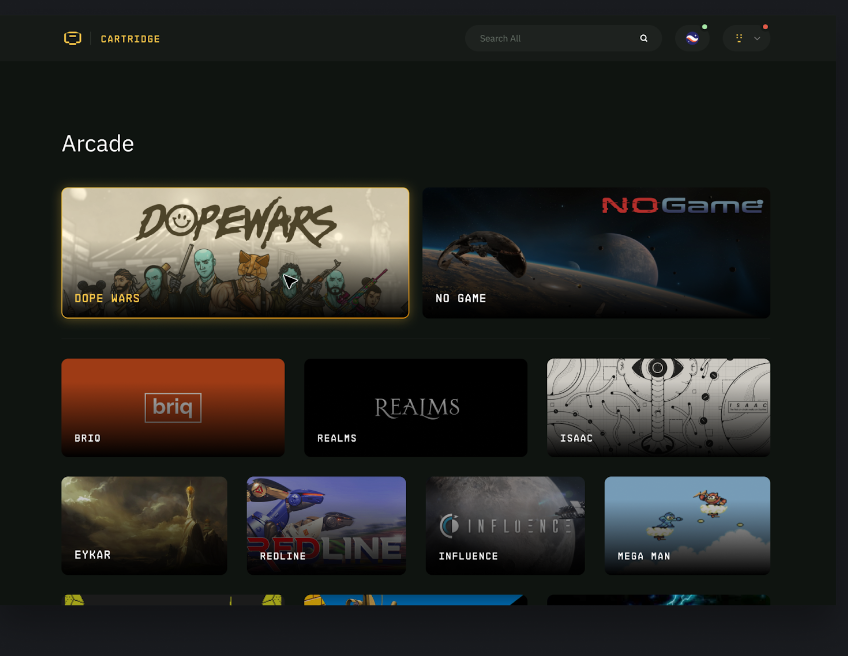Author: Alec Chen
Source: volt.capital
foreword
The crypto game is still in its infancy. Recent advances in blockchain scalability and infrastructure now allow new types of games to be built entirely on-chain, opening the way for integration with the crypto-economy and the wider decentralized ecosystem. As crypto gaming grows into an industry, players and developers alike will benefit from the economics, incentive structures, and identity and coordination primitives of a decentralized economy.
On-Chain Games
On-chain gaming is an example of how cryptocurrencies are bringing a paradigm shift to traditional gaming. Game design is driven by its limitations. Since execution is limited by gas costs, current iterations of on-chain games are usually turn-based RTS games. In 0xMonaco , Paradigm’s latest capture-the-flag challenge on-chain racing game, players race against each other’s smart contracts, and can adjust their strategies to deal with opponents by customizing smart contract logic. By introducing a multiplayer mode, 0xMonaco has added a fun and competitive PvP dynamic. 0xMonaco has been a huge success in the community, allowing us to see the possibilities of customization in on-chain multiplayer games.
Through advances in blockchain infrastructure and scalability (such as zero-knowledge proofs and data availability layers), game genres such as multiplayer online battle arenas (MOBAs) and first-person shooters (FPS) can now be built entirely on-chain , Massively unlock multiplayer online games on the chain. The ability to bring highly interactive games on-chain increases mainstream appeal and draws a wider audience to the existing on-chain gaming ecosystem, enabling a new generation of young players to enter the crypto space.
Minecraft Realms: Personal Servers Hosted by Players
Customizability
Building games on-chain brings transparency and strong immutability guarantees, while also providing customizability. By translating core gameplay and functionality into a superstructure , developers can build composable and customizable games as first-class citizens, and develop and evolve in a decentralized, community-first manner.
In traditional games, modding communities provide players with an organic way to experience the world outside of the core gameplay. User-generated content (UGC) is a huge driver of revenue for games like Roblox and Minecraft, which outsource community management and development to independent developers. This opens up an interesting new paradigm for game developers; for on-chain games, instead of having game developers maintain "official" game servers, game studios only need to develop the underlying infrastructure (which can be as simple as a smart contract specifying the core gameplay mechanics) and outsource hosting and further development to the community. Indie developers can build on the original game's protocol to bring their fantasy worlds to life by hosting "private servers" with custom skins, gameplay, and assets. Communities can deploy native currencies in their own private servers for governance and in-game purchases.
Using an analogy with blockchain infrastructure, private servers can be seen as rollups of the layer 1 base game, with each server and community having its own token and ecosystem. Similar to the inherent composability and interoperability between rollups sharing a base layer, on-chain games enable the interoperability of player assets and identities across previously fragmented communities. Each server has its own unique assets, players, and communities that cannot be shared or communicated across servers. On-chain gameplay enables cross-server communication, allowing players to transfer their assets and progress from one fantasy world to another. The open-source nature of the protocol and cryptocurrency facilitates this interdependence, while tokenization allows the community to benefit from the growth of the broader gaming ecosystem.
Governance and Community
Bringing games on-chain also provides the community with a toolbox of governance primitives that support cryptocurrencies. Decentralized governance enables players to participate in the development of the game and have a voice: users will be able to participate in the balance and adjustment of gameplay, vote and propose through governance tokens. In addition, built on an open blockchain track, it can provide players with verifiable on-chain data and asset ownership. Game developers looking to adopt a community-first approach can facilitate user engagement through on-chain integration, leveraging cryptographic primitives for assets, community, and governance.
On-chain games also offer the possibility of community ownership as a core game mechanic. An example of this is a community balancing game, where players use cryptocurrency-backed governance to adjust the smart contracts that determine core game mechanics on-chain. Another interesting possibility is to unlock token-backed governance natively in the game. In multiplayer online games, players often organize themselves into groups—"guilds"—to achieve in-game goals. In on-chain games, guilds can be organized through token-backed DAO primitives, bringing a layer of transparency and digitally native coordination tools to the gaming community. Building these integrations on the crypto rails is also beneficial to developers; compared to analog games, where developers have to spend engineering cycles deploying and maintaining governance logic, in the crypto space, they can do this by simply plugging in existing governance logic. There are cryptographic primitives that use tokens as membership and DAO tool solutions for governance, thereby bootstrapping the guild system. This unlocks further expressiveness and customizability for DAO guilds, independent of the constraints set by the game designer.
Identity and Social Layer
Cryptocurrencies also provide players with strong, composable digital identities. For example, Steam has a thriving ecosystem where players can customize profiles and self-organize into communities based on shared interests or games. Putting the system on-chain allows crypto gamers to build reputations anonymously, while being able to port and use their identities and social graphs in games outside of a specific developer or publisher ecosystem. This also has big implications for reputation-based services. As users accumulate reputations using pseudonyms within online games or the broader digital community, these on-chain indicators, along with a user's in-game identity, can be linked to identities in other contexts as indicators of authority and trustworthiness .
Cartridge's quest feature - complete quests on the platform and earn rewards.
encrypted wallet
Traditional crypto wallets are designed for general use and do not have many of the advanced features that players are used to in simulated applications. Particularly important gaming features missing from existing wallets include discovery, identity, and community primitives. The social element is critical to the success of multiplayer games; players want to be able to see what games their friends are playing, organize into communities based on common interests, and discover new games. Integration with crypto games through traditional channels is unlikely: Due to the resistance of the traditional gaming industry to cryptocurrencies, such as Valve banning all NFTs and cryptocurrencies on its platform , it seems that an equivalent crypto solution must be built natively. One group working to bridge this gap is the “Steam” of crypto gaming –Cartridge . Users on Cartridge will be able to browse and use a curated selection of crypto games, earn rewards from quests, level up their characters, and interact with friends and the community. Game-specific crypto wallets provide these missing discovery and social features for blockchain gamers: platforms like Cartridge act as infrastructure, connecting the composability benefits of crypto games beyond the application layer.
Cartridge allows users to browse and discover new on-chain games.
summary
Platforms such as Steam provide composability and ecosystems for games, but they can also unilaterally impose restrictions on players, often against the consensus of the community. Decentralized alternatives like Cartridge allow users to benefit from the core identity, governance, and social innovations of a decentralized gaming ecosystem, while preserving free market principles. Ironically, core innovations in gaming built on a decentralized trajectory have led to centralization of assets, identities, and communities in decentralized gaming ecosystems. Building games on-chain supports composability by default and opens up new game mechanics and paradigms for developers and users. Let's not forget the original purpose of scaling throughput and improving blockchain infrastructure: to unleash the potential to build new applications on decentralized rails. If the next billion users will enter the crypto space through games, creating crypto games with broad mainstream appeal while delivering a superior user experience through well-designed incentive structures, sustainable economies, and platforms is critical.
 Edmund
Edmund










